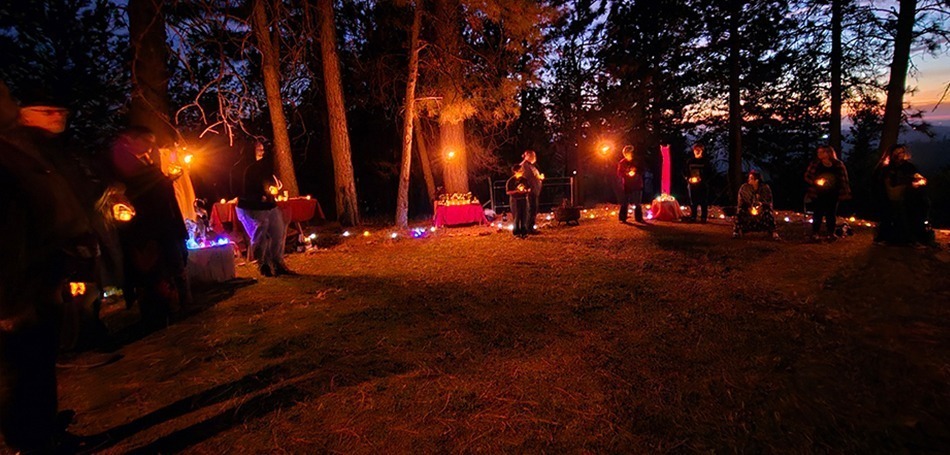
By Gus diZerega
For six years, I participated in a healing center in Berkeley that integrated African Diasporic practices and Buddhism. Sometimes, I did so several times a week. Those years were as demanding (and rewarding) as the previous years I spent getting a Ph.D. in Political Science at Berkeley, but they never involved writing or reading anything.
I had already become a Wiccan when I began to work at the healing center and explained my first commitment was to the Wiccan Goddess, but so long as that was acceptable, I would love to participate. And participate I did until a growing focus on Buddhism gradually squeezed out the African Diasporic dimension of its work. I left on friendly terms and regard those years as one of the most important spiritual experiences of my life.
While I could explore many potential spinoffs from those years, the one that seems most relevant today concerns the distinction between knowledge that can be taught through speaking and reading and knowledge that can only be learned by hands-on experience.
One day Antonio, the head of the healing center, told us he could teach us everything he could put into words in a long weekend…and it would be worthless. The real transformations took place differently, through repeated and extended immersion in the center’s energy field and the various rituals and invocations required to do effective work for others there.
This kind of knowledge required learning the feel of subtle energies we moderns grow up rarely even noticing. It involved learning to move that energy into and within ourselves and into others and developing relationships with discarnate entities to help us do so. These skills cannot be learned by reading a book or following abstract rules of procedure. Such practices, widely recognized and practiced world-wide in indigenous cultures, had to be learned experientially, often over a lengthy period of apprenticeship.
Early Craft relied on this kind of knowledge, also obtained experientially. There were books with scripts and histories but they did not teach magick, certainly not beyond the most basic. To learn more, there was training and experience in a coven.
Today, this condition has been turned upside down. It seems to me most Pagans today are solitaries and most solitaries learn their practices from books or online. This situation, in part, reflects a relative shortage of available teachers but it also reflects a shift in how people think knowledge about the Craft can be transmitted: from working with someone who knows more than you and helps you grow in skills and depth of understanding to reading someone or listening to them online as they endeavor to teach some aspect of the Craft.
I think this change profoundly alters what people do as NeoPagans. As a community, we increasingly focus on what can be learned from books and video demonstrations, where we are separate from the teachings, rather than, as in indigenous and traditional coven contexts, where we are immersed in the experiences about which we are learning. At best, maybe we can attend a weekend workshop. This approach makes the Craft and similar traditions more easily accessible and is certainly adequate for celebratory and devotional activities, but it does not open the student to its deeper dimensions and I think often filters their understanding of what we do through ideological categories little connected to its actual practice.
If I can urge just one thing to address this worrisome simplification of the core of NeoPagan practice, it is join or create a coven/nest/grove or other small and intimate group. With care, deeper levels of understanding can grow from spending time immersed within the energies once learning the most basic steps on your own and a harmonious group offers a more secure way to do so.
On the other hand, rather like most Christians, most NeoPagans might be quite content stopping at its celebratory and devotional boundaries and not spend the time and energy to go more deeply into an enchanted world. That might be a normal result of increasing numbers and greater ease of access but for the serious practitioner, time spent in a small group seems to me absolutely essential.
Gus diZerega is a Third Degree Elder in Gardnerian Wicca with spent many years of experience with Afro-Brazilian healing shamanism. He has given workshops on the latter in many places as well as having taught and initiated Wiccans. DiZerega is also a (retired) Political Scientist (Ph.D. Berkeley) whose academic focus was democratic theory and environmental theory and policy. DiZerega has written several books, published in a wide variety of social science journals and extensively within the Pagan press. His latest book is God is Dead, Long Live the Gods: A Case for Polytheism.